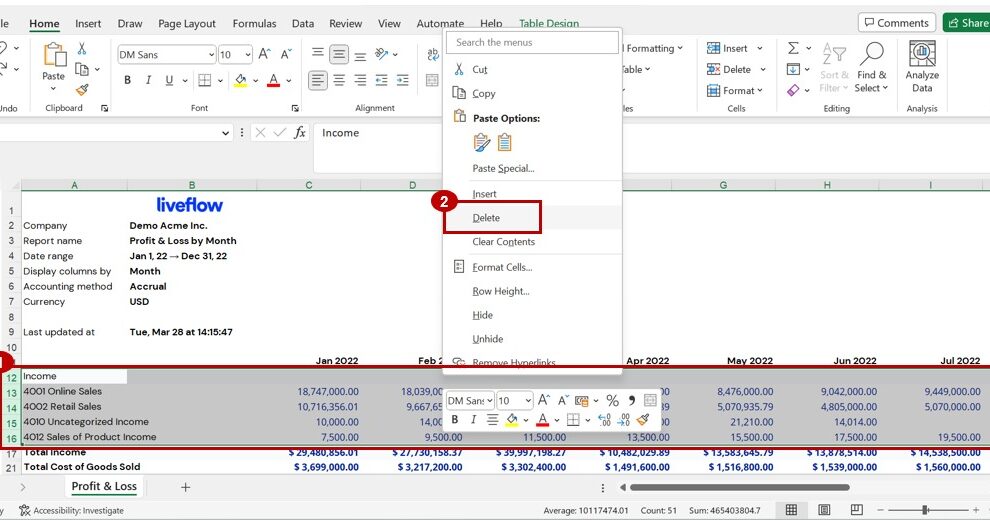In the world of data management, Excel remains a versatile and powerful tool for organizing, analyzing, and visualizing information. However, as your spreadsheets grow in complexity, the need to delete multiple rows can arise frequently, whether it’s to remove outdated data, reorganize your information, or simply maintain a clean and efficient document. In this comprehensive guide, we’ll walk you through the process of deleting multiple rows in Excel, empowering you to take control of your spreadsheet environment.
Understanding the Importance of Deleting Multiple Rows in Excel
Deleting multiple rows in Excel serves several crucial purposes:
- Improved Readability and Navigation: Removing unnecessary rows can make your spreadsheet more concise and easier to navigate, allowing you and your team to focus on the relevant data without distractions.
- Enhanced Data Analysis and Visualization: Eliminating irrelevant or outdated rows can ensure that your data is presented in a more streamlined and coherent manner, making it easier to perform calculations, create charts, and generate meaningful insights.
- Optimized Storage and Performance: Excessively large Excel files with many rows can slow down your computer’s performance and consume more storage space. Deleting unnecessary rows can help optimize the file size and enhance the overall efficiency of your spreadsheet.

How to Delete Multiple Rows in Excel: Step-by-Step Guide
Now, let’s explore the step-by-step process of deleting multiple rows in Excel:
Step 1: Select the Rows to Delete
Begin by selecting the rows you want to delete. You can do this in the following ways:
- Click on the row number(s) to highlight the individual rows you want to delete.
- Drag your mouse across the row numbers to select a range of rows.
- Hold the “Ctrl” key (Windows) or “Command” key (Mac) and click on the row numbers to select non-adjacent rows.
Step 2: Delete the Selected Rows
Once you’ve selected the rows you want to delete, you can use one of the following methods to remove them:
- Right-click on the selected rows and choose “Delete” from the context menu.
- Go to the “Home” tab in the Excel ribbon and click the “Delete” button in the “Cells” group.
- Press the “Delete” or “Backspace” key on your keyboard.
Step 3: Confirm the Deletion
After deleting the selected rows, it’s a good practice to review your spreadsheet to ensure that the correct rows have been removed and that your data is still intact.
Step 4: Regularly Review and Maintain
Deleting multiple rows in Excel should be a regular part of your spreadsheet maintenance routine. Make it a habit to review your data, identify any unnecessary or outdated rows, and remove them to keep your Excel document clean and efficient.
Conclusion: Embracing a Clutter-Free Excel Experience
Deleting multiple rows in Excel is a valuable skill that can help you maintain a well-organized and efficient spreadsheet environment. By following the steps outlined in this guide, you can quickly identify and remove unwanted rows, improving the overall readability, data analysis, and performance of your Excel documents.
Remember, regular maintenance and optimization of your Excel spreadsheets can have a significant impact on your productivity and the quality of your data. Embrace the power of row deletion, and let the benefits of a decluttered Excel experience transform your data management workflows.










Add Comment